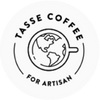Italian Coffee History and Culture
Why is Italy always associated with coffee?
☕17th century - Early introduction of coffee
Coffee was first introduced to Italy in the 17th century, initially through commercial channels in Venice.
At the time, coffee was usually prepared by traditional methods such as boiling coffee powder or ground coffee beans, rather than using modern coffee machines. During this period, coffee became a popular drink, gradually spread to other cities in Italy, and played an important role in the formation of Italian coffee culture.
☕Opening of the first coffee shop
With the rise of coffee, Venice opened its first coffee shop in the early 17th century - Caffè Florian. This historic coffee shop was founded in 1720 and has a history of more than 300 years. Caffè Florian is famous for its gorgeous interior decoration and as a gathering place for cultural celebrities. Many artists and cultural celebrities have visited it, including Oscar Monet, Andy Warhol, Charlie Chaplin, Hemingway, etc.
Many Italian coffee houses have a long history and cultural value. They often host literary, musical and artistic events, attracting artists, writers and intellectuals, strengthening the connection between coffee and Italy.
☕The emergence of espresso machines
In the early 20th century, Italian engineer Luigi Bezzera invented the first commercial coffee machine. This invention changed the way coffee was made. It used pressure to make espresso, creating a stronger, more intense coffee that became the basis of Italian espresso.
In modern times, famous Italian coffee machine brands such as La Marzocco, Faema and Rancilio have provided high-quality coffee machines to coffee lovers around the world, further strengthening the connection between coffee and Italy.
☕Italian lifestyle
When the espresso machine gradually became popular, it not only became a must-have equipment in Italian coffee shops, but also penetrated into the daily life of Italians. With the popularity of espresso machines, every Italian family may own one.In the morning, when people wake up, the first thing they usually do is make a cup of espresso, which becomes an important ritual for them to start the day.
In a café, people often stand at the bar, order an espresso, quickly sip it, and then move on. This practice is called a "caffè al banco". Whether in a café or at home, people often gather together to enjoy a strong cup of coffee, talk about topics, and share time.
If you have a strong interest in the culture of Italian coffee, Tasse Coffee has become the only Italian Barista Certificate course in Hong Kong since 2022 (formerly known as the Italian Barista Method), a globally certified professional coffee training course.
The course focuses on the real needs of improving baristas or coffee roasters and teaches all learning topics based on actual training operations, including barista,Latte ArtArt, brewing and baking are very helpful for starting a business or changing careers. The advanced course provides practical content for you to become a store manager or entrepreneur. The test results can be used to compete with students from all over the world, which can be said to keep up with the trend of globalization.
For enquiries or registration: WhatsApp 70733512 / www.tasse-coffee.com




